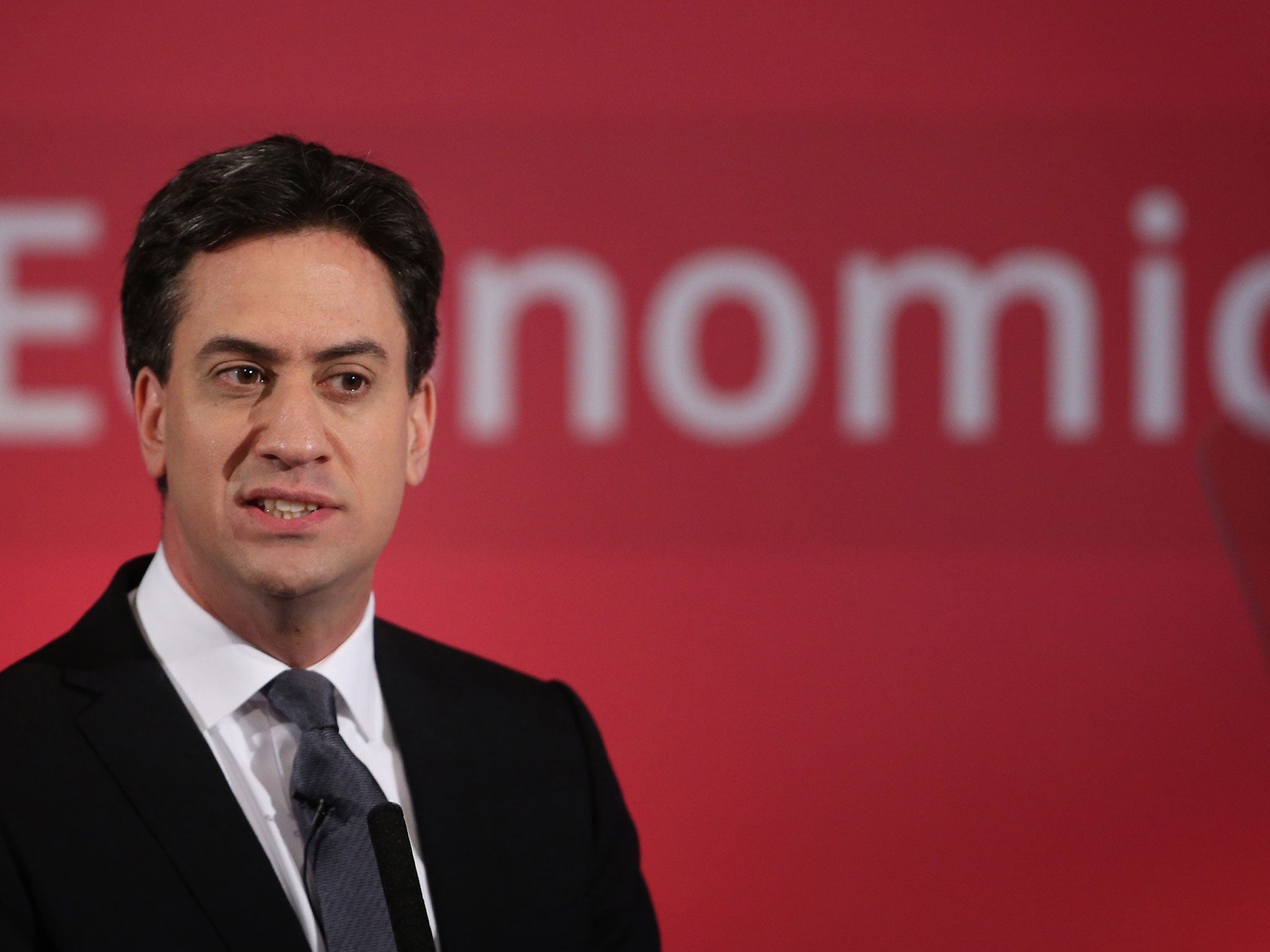Ed Miliband pledges plan to cut the deficit will be a priority for Labour at next election
In a major speech in London, Miliband said Labour would clear the deficit on day-to-day spending on public services 'as soon as possible' before 2020

Cutting the deficit every year will be the first item on Labour’s "pledge card" at next May's general election, Ed Miliband announced today.
The highly symbolic move came as the Labour leader tried to boost his party's economic credentials by promising to balance the nation's books while still protecting public services.
In a major speech in London, Mr Miliband unveiled the first lines of his credit card-size pledge card with five pledges, like the one issued by Tony Blair when he won a landslide victory in 1997.
Mr Miliband said: "I can announce our first pledge of the general election campaign. We will build a strong economic foundation and balance the books.
"We will cut the deficit every year while securing the future of the NHS. And none of our manifesto commitments will require additional borrowing. These are my clear commitments to the British people."
By devoting a speech to the deficit, Mr Miliband tried to draw under a line under his damaging mistake at Labour's conference in September, when he forgot to mention the "D-word."
Mr Miliband said Labour would clear the deficit on day-to-day spending on public services "as soon as possible" before 2020. The Conservatives and Liberal Democrats have pledged to do so by the 2017-18 financial year.
He said: "The last Labour government increased spending year on year, using the proceeds of economic growth to make our country fairer.
"That option will not be available to us."
The Labour leader announced that Labour's "zero-based" review of every pound of public spending had identified £500m of savings from local government. He promised to devolve "unprecedented levels of spending" to local authorities, including transport, skills and back-to-work programmes.
Ed Balls, the shadow Chancellor, said today that Labour would cut departmental spending "every year until we get the deficit down."
He confirmed that the NHS and overseas aid budgets would be protected from cuts and hinted that schools spending would also be safeguarded when Labour published its manifesto. "I think education is massively important, of course there are other areas, defence, social care, local government services, policing – these are all very important areas," he said.
In pictures: Chancellor George Osborne delivers his Autumn Statement
Show all 8Mr Balls told BBC Radio 4's Today programme that a future Conservative government would be "so extreme" that it would be like going back to "1930s Britain" – when the state's share of national income was 35 per cent. He rejected that but refused to disclose Labour's preferred level for state spending, which now accounts for 41 per cent of national income. He also declined to say what level of cuts he had demanded from Shadow Cabinet ministers in non-protected departments.
Mr Balls said Labour would eliminate the deficit "as soon as we can," but would not give a specific year.
He said: "The difference between me and the Conservatives is I am going to set out a credible plan, and I am not going to make promises I can’t keep… there are no £7bn of unfunded commitments in the Labour plan. Everything which we set out is costed and paid for. I want to do it by the end of the parliament. I want to do it sooner in the parliament if I can, but I can’t promise to do that earlier if we don’t know what is going to happen to growth, to tax revenues. There are going to be spending cuts but not on the scale of the Conservatives, because theirs are extreme. We will make different choices on tax, we will cut the deficit every year and we will balance the books in the next parliament."
Subscribe to Independent Premium to bookmark this article
Want to bookmark your favourite articles and stories to read or reference later? Start your Independent Premium subscription today.

Join our commenting forum
Join thought-provoking conversations, follow other Independent readers and see their replies